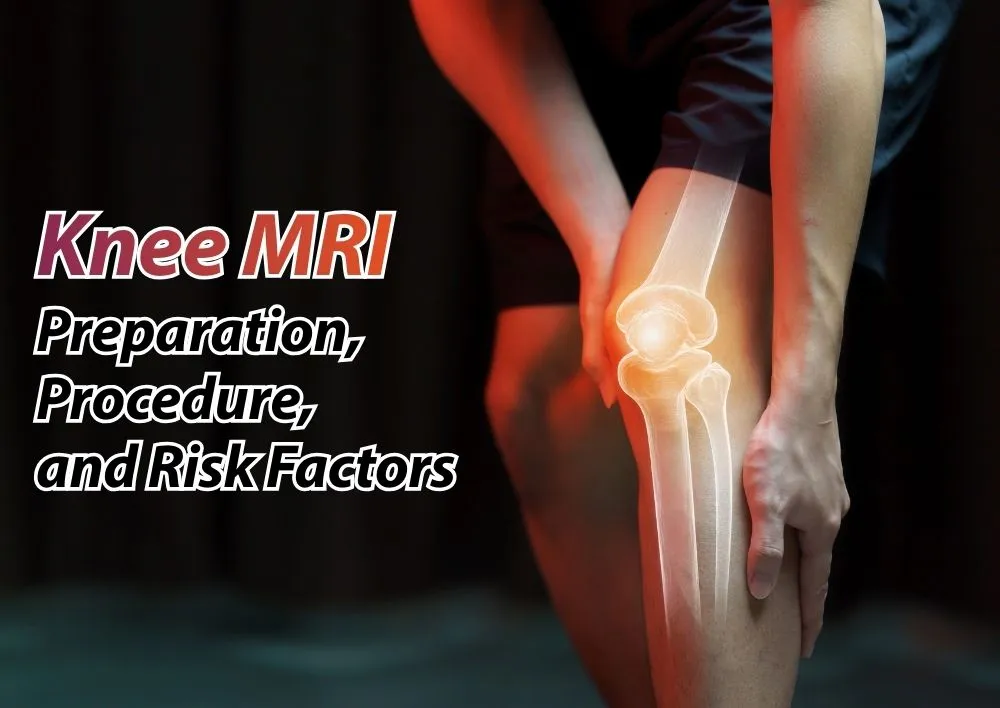10 Signs of Dehydration You Should Never Overlook
Summary
Dehydration is a common issue that can be easily managed with the right knowledge and actions. Recognizing the early signs of dehydration, such as thirst, dry mouth, fatigue, and dark urine, is crucial for timely intervention. By staying hydrated and paying attention to the body’s signals, dehydration can be prevented and treated effectively. Adopting simple habits like drinking plenty of water, eating water-rich foods, and avoiding excessive caffeine or alcohol can go a long way in maintaining optimal hydration and overall health.
Water is essential for numerous bodily functions, including regulating temperature, transporting nutrients and oxygen to cells, cushioning joints, and aiding digestion. However, when you don't consume enough fluids to replenish what is lost through everyday activities like sweating, breathing, and urination, dehydration can occur.
According to Dr. Sumit Gulla, the best internal medicine doctor in Gurgaon at Miracles Apollo Cradle/Spectra, dehydration is a condition that occurs when your body loses more fluids than it takes in. If left uncontrolled, dehydration can have serious effects. Our bodies rely on water to function properly, and even mild dehydration can lead to a range of symptoms that affect both physical and mental well-being. In this blog post, we'll discuss the importance of hydration, its causes, and preventive measures, and reveal the ten signs of dehydration you should never overlook
10 Signs of Dehydration
The severity of symptoms can vary depending on the degree of dehydration and individual factors such as age, overall health, and environmental conditions. Mild dehydration can often be resolved by drinking water and other hydrating fluids. On the other hand, severe dehydration requires immediate medical attention and may necessitate intravenous fluids.
Here are 10 signs of Dehydration:
-
Thirst: The most prominent symptom of dehydration is feeling thirsty. By the time you feel thirsty, your body is already in a state of mild dehydration, so it's important to drink water regularly throughout the day to stay hydrated.
-
Dry Mouth and Lips: These are definitive symptoms of dehydration. When you are dehydrated, your body makes less saliva, leading to cracked lips and a feeling of thirst.
-
Fatigue and Weakness: Dehydration can leave you feeling tired and lazy, as your body struggles to carry out its normal activities without a sufficient supply of water.
-
Dark Urine: The color of your urine also provides valuable information about your hydration levels. In a normal and well-hydrated state, the color of urine is pale yellow but in the case of dehydration, the urine color becomes dark yellow.
-
Headaches: In some individuals, low hydration levels can cause headaches and migraines. Staying hydrated helps maintain the proper flow of blood to the brain and can help prevent headaches.
-
Dizziness and Lightheadedness: Dehydration can cause a drop in blood pressure, leading to feelings of dizziness or lightheadedness, especially while standing up quickly.
-
Dry Skin: The skin in the body requires hydration to maintain its elasticity and function properly. Dehydration can leave your skin feeling dry, tight, and less resilient.
-
Muscle Cramps: Due to dehydration, the electrolytes become imbalanced and can contribute to muscle cramps and spasms, especially during physical activity.
-
Decreased Urination: The reduced urine output could be a sign that you are not consuming enough fluids to maintain proper hydration levels.
-
Confusion or Irritability: Dehydration doesn't just affect your body; but can also impact your mood and mental function. In severe cases, dehydration can cause confusion, irritability, and difficulty concentrating.
If you experience any of these symptoms of dehydration or if symptoms persist or worsen, consult the best internal medicine doctor near you for immediate medical intervention to restore fluid and electrolyte balance and prevent serious complications.
Causes of Dehydration
Dehydration can be caused by various factors that disrupt the balance between fluid intake and output in the body. Some common reasons for dehydration are:
-
Insufficient Fluid Intake: Failure to drink enough fluids, mainly water, regularly is one of the main causes of dehydration. It can occur due to lack of access to clean water, forgetfulness, or simply not identifying the body's need for hydration.
-
Excessive Fluid Loss: Fluid loss can occur through sweating, urination, breathing, and bowel movements. Excessive sweating due to intense physical activity, hot weather, or fever can lead to fast fluid loss and dehydration if fluids are not refilled sufficiently.
-
Diarrhea and Vomiting: Gastrointestinal illnesses such as diarrhea and vomiting can cause considerable fluid loss, leading to dehydration, especially if the symptoms are severe or prolonged. These conditions prevent the absorption of water and electrolytes in the intestines.
-
Fever: Fever increases the temperature of the body, causing increased sweating and fluid loss. If sufficient fluids are not taken to balance the increased loss, dehydration can occur, especially in cases of high fever.
-
Diabetes: Diabetes mellitus (Uncontrolled Diabetes) can lead to dehydration due to frequent urination. When blood sugar levels are elevated, the kidneys work to remove extra glucose from the bloodstream through urine, resulting in increased fluid loss.
-
Medications: Some medications, such as water pills, certain blood pressure medications, and antihistamines can increase urine output and contribute to dehydration by promoting fluid loss.
-
Excessive Alcohol and Caffeine Consumption: Consumption of alcohol and caffeinated beverages like coffee and tea can increase urine production and lead to dehydration if consumed in excess.
-
Sweating: Intense exercises, physical activity, or working in hot atmospheres can cause significant sweating and fluid loss, particularly if sufficient fluids are not consumed to replace what is lost.
-
Burns and Wounds: Severe burns or large wounds can lead to loss of fluid through damaged skin. The body may also lose fluids due to increased metabolism and inflammation in response to injury.
-
Older Age: As people age, their sense of thirst may decrease, and their kidneys may be less efficient at saving water. Older adults may also be more inclined to particular medical conditions or medications that increase the risk of dehydration.
It's important to be mindful of these possible causes of dehydration and take proactive steps to maintain proper hydration levels, especially during times of increased fluid loss or risk factors for dehydration.
Why is Hydration Important?
Proper hydration is important for maintaining overall health and well-being, as water plays an important role in several bodily functions. Some key reasons why hydration is important include:
-
Regulates body temperature
-
Facilitates nutrient and oxygen transport to cells
-
Cushions and lubricates joints
-
Aids in digestion and nutrient absorption
-
Supports organ function, including kidney health
-
Enhances cognitive function and mood stability
-
Promotes healthy skin and reduces the risk of urinary tract infections
-
Helps maintain the balance of electrolyte and fluid volume in the body
Prevention of Dehydration
Preventing dehydration involves adopting habits and practices that help maintain adequate fluid balance in the body. Here are some effective ways:
-
Drinking plenty of water throughout the day is the best way to hydrate fast.
-
Increase fluid intake during physical activity or hot weather.
-
Consume electrolyte-rich beverages or oral rehydration salt solutions if needed.
-
Limit alcohol and caffeine consumption, as they can increase fluid loss.
-
Monitor the color of urine to ensure enough hydration.
-
Eat water-rich foods such as fruits and vegetables.
-
Pay attention to signs of dehydration and respond immediately by increasing fluid intake.
Home Remedies For Dehydration
Home remedies can help relieve dehydration symptoms and support rehydration. Here are some effective options:
-
Increase Water Intake: Increasing water intake is the most precise way to manage dehydration. Sip little amounts of water continuously throughout the day.
-
Consume Oral Rehydration Solutions: Consume prepared oral rehydration solutions, or prepare them at home using water, salt, and sugar. It can help refill lost fluids and electrolytes.
-
Watery Fruits and Vegetables: Eating fruits and vegetables with high water content, such as watermelon, cucumbers, oranges, can help relieve dehydration.
-
Coconut Water: Coconut water is a rich source of electrolytes such as potassium and can help rehydrate the body.
-
Avoid Alcohol and Caffeine: Limit consumption of diuretic substances like caffeine and alcohol, as they can contribute to dehydration.
While these home remedies may be helpful for mild dehydration, severe dehydration requires medical attention. If dehydration is severe or accompanied by symptoms such as confusion, rapid heartbeat, or fainting, seek immediate medical assistance.
Conclusion:
Dehydration is a condition that can affect anyone, but with awareness, proper hydration practices, and immediate treatment, it is preventable and manageable. Taking proactive steps to stay hydrated is important to maintain optimal health and well-being. Remember, staying hydrated is not just important during hot weather or intense physical activity; it's an important part of overall wellness. Make it a habit to drink water regularly throughout the day, and pay attention to the signals your body sends you to ensure you stay sufficiently hydrated.
Stay proactive about your hydration! Keep a water bottle handy, especially during hot weather or physical activity, and pay attention to signs of dehydration. If you experience symptoms of dehydration, consult an internal medicine doctor near you at Miracles Healthcare for guidance and dehydration treatment. Your health and well-being are worth prioritizing!
Frequently Asked Questions
Yes, dehydration can trigger a headache by reducing blood flow to the brain.
Dehydration can contribute to a fever, especially when it results from illness or infection.
Yes, dehydration can lead to vomiting, especially when it is caused by excessive fluid loss.
Dehydration can increase the chance of urinary tract infections (UTIs) by preventing the required urine production to flush out the bacteria.
Yes, dehydration can lead to stomach pain and cramps because of a lack of fluids needed for digestion.
Dehydration can result from diarrhea, as excessive fluid loss from the intestines worsens hydration levels.
Dehydration usually occurs when your body loses more fluids than it takes in.
Yes, dehydration can cause dizziness because of low BP and reduced fluid volume.
Severe dehydration can cause blood in urine, often due to kidney or urinary tract issues related to lack of fluids.
Dehydration occurs when the body loses more fluids than it replaces, usually because of sweating, illness, or insufficient fluid intake.
WHO has classified Dehydration by its severity from mild, moderate, to severe, depending on fluid loss and symptoms.







_Causes,_Symptoms_Effective_Management_Tips.webp)








Was the information useful?
0 0